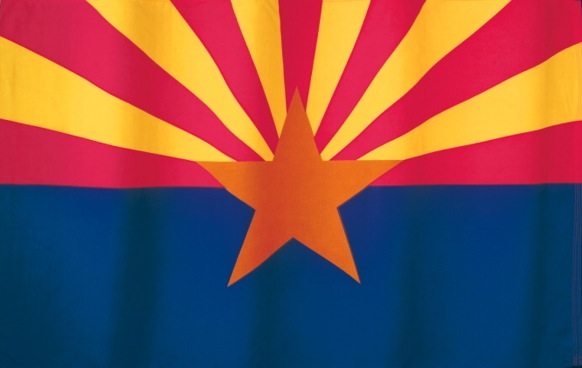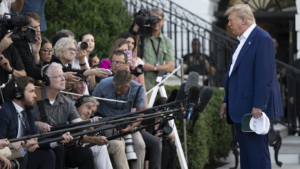It’s the start of 2011. This is usually when everyone writes top 10 lists for the year just past. I was going to write a “top 10 political stories of 2010 column,” when it occurred to me that was the year of one main significant political story.
Oh, there were plenty of important political happenings. President Obama and the Democrats were crushed nationally in the midterm elections. Arizona said goodbye to Congressman John Shadegg, Congressman Harry Mitchell, and Congresswoman Ann Kirkpatrick, and hello to newly elected Congressmen Paul Gosar, Ben Quayle and David Schweikert.
Our state struggled to balance the budget, and almost every city in Arizona made major cuts in order to balance theirs. Gov. Jan. Brewer’s re-election faced an early challenge from within her own party. During the general election campaign she froze in a televised debate and didn’t seem to offer any tangible evidence of headless bodies in the desert. Then of course she sailed to an easy victory at the polls.
Voters even decided that marijuana should be legal in Arizona (as medicine that is).
None of these other stories came anywhere close to being as significant as the firestorm created by the Support Our Law Enforcement and Safe Neighborhoods Act, more commonly known by its Senate bill number, SB 1070. At one point in the 2010 legislative session, SB 1070 seemed to lack support and was close to being dead. Then tragically, on March 27, southeastern Arizona rancher Robert Krentz was found shot to death alongside of his dog. His ranch sits 12 miles away from the U.S.-Mexico border. SB 1070 found new life and was signed into law on April 23. Suddenly the nation was abuzz about Arizona. It even became a headline internationally.
Those first few weeks were a little surreal. Almost daily, you could find our local elected officials on national talk shows speaking out in favor or against it. Supporters justified that action was needed to deal with illegal immigration, an issue the federal government was ignoring. Opponents claimed SB 1070 would violate civil rights and lead to racial profiling.
SB 1070 was a little vague, so on April 30, HB 2162 was passed to amend and clarify it.
A boycott was called against Arizona and numerous lawsuits were filed, including one by the U. S. Department of Justice. The day before SB 1070 was to go into effect, a federal judge issued an injunction against a portion of the law that effectively killed it.
You might think that this is where the SB 1070 story ends, but it doesn’t — and that is what makes it such a huge event. Although nationally, numerous jurisdictions and high-profile people were passionate in their opposition, polling showed that it was more popular with the masses. A number of states are discussing similar legislation for 2011.
In the New Year, Russell Pearce, the Arizona Senate president and major sponsor of SB 1070, is continuing to focus on the same issue. With the start of the next Arizona Legislative session, he intends to take on the U.S. Constitution’s 14th amendment dealing with citizenship being granted to anyone born in the U.S. He is trying to prevent illegal immigrants from getting citizenship for their children by fleeing to America and having a baby on U.S. soil.
Although SB 1070 didn’t get enacted, it did serve part of the purpose it supporters intended. Illegal immigrants now recognize Arizona as the least friendly state to homestead in.
I still believe that SB 1070 would not have really fixed the problems it was intended to fix. However, it was successful in driving a complicated issue into the mainstream of discussion on the national level.




